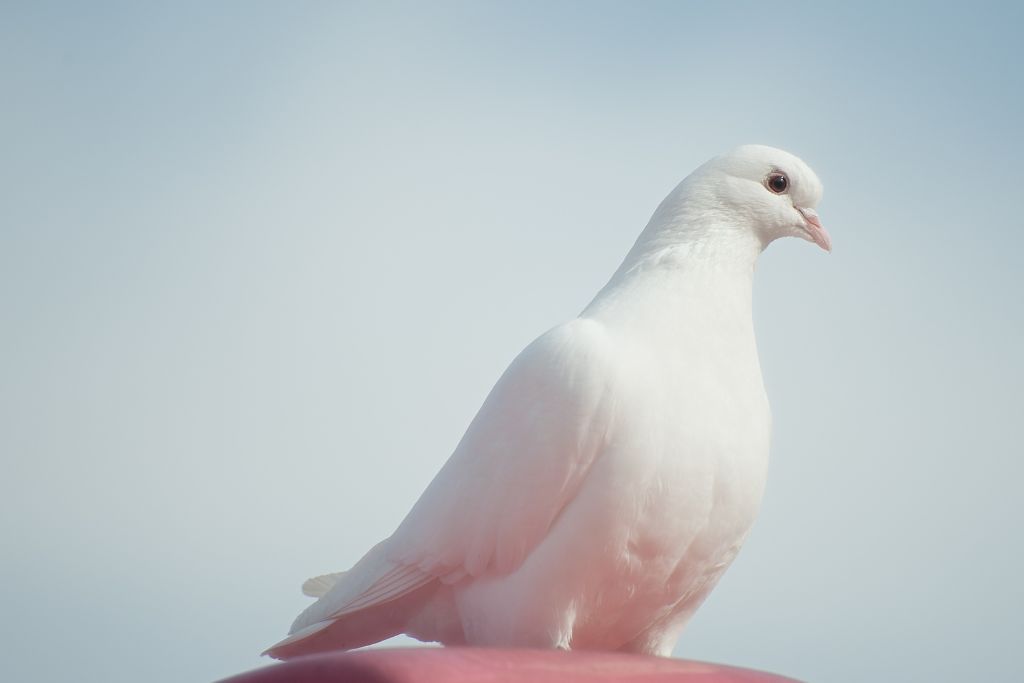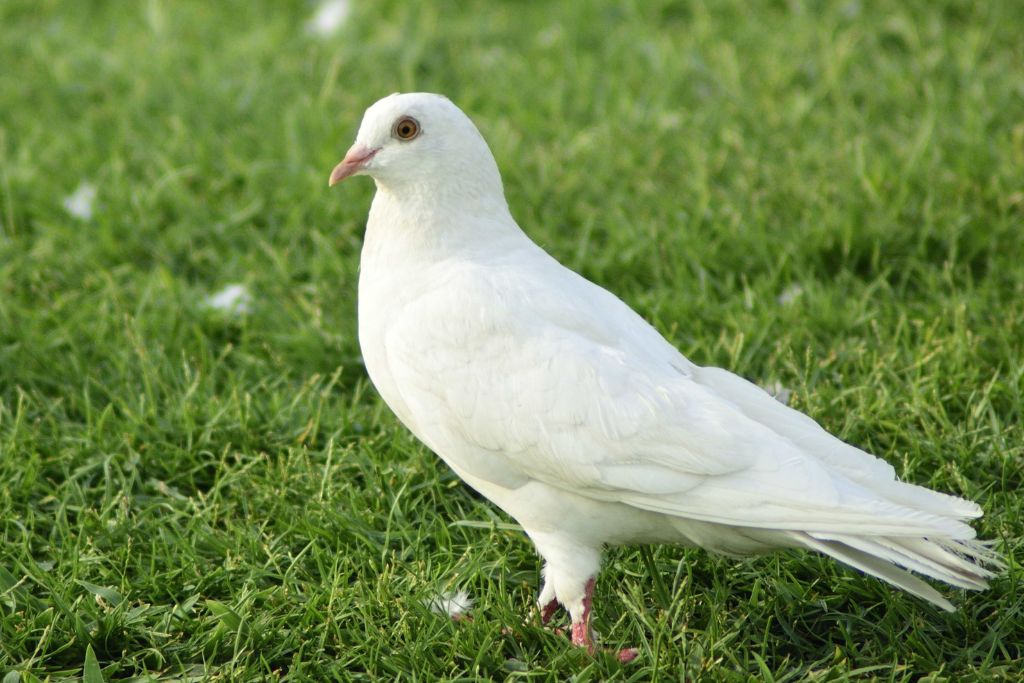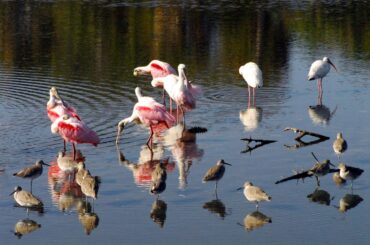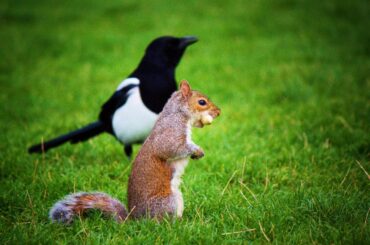Have you ever seen a dove and wondered how long it lives? Are you curious about these beautiful birds? What makes them so attractive to bird lovers?
Doves are peaceful birds, known for their gentle nature. People often see them in parks, gardens, and cities. For bird lovers, birdwatchers, and enthusiasts, the life and habits of doves are genuinely fascinating. If you’re one of them or simply curious, keep reading! You’ll discover their lifespan and what makes these creatures so unique.
General Characteristics of Doves

The dove’s contribution to the ecology is crucial. Birds of prey and other animals often eat doves , making them a part of the food chain. Doves inhabit various places, such as cities, forests, and deserts.
These birds display a soft gray or brown color and make cooing sounds. You might spot them in your backyard, a park, or even in the city, nesting in trees or on buildings.
What is the Average Lifespan of Doves
The average lifespan of a dove is quite surprising. Most doves live for only 1 to 5 years in the wild. Their lifespan depends on factors such as food, shelter, and their ability to avoid predators.
In captivity, doves can live much longer due to the abundance of food and the absence of predators. Some even reach 20 years or more! It’s an interesting fact that shows how different life can be for these birds in the wild compared to being cared for by people.
Factors Influencing Dove Longevity
The lifespan of a dove is not set in stone. Various things can make a dove live longer or shorter. Now, let’s explore the factors influencing dove longevity.
Genetics and Species Variation
The lifespans of different dove types vary, with some living longer due to their genetic makeup. The specific species of a dove can decide how long it might live. For example, a mourning dove might only live for 5 years, while a ringed turtle dove can live up to 20 years in captivity.
Environmental Factors
Where a dove lives has a significant impact on its life. If a dove has a safe place to live with shelter from the weather, it can live longer. Bad weather, pollution, or natural home loss can shorten a dove’s life.
Diet and Nutrition
What a dove eats is also important. Doves need the right food to stay healthy and strong. Seeds, grains, and fruits compose most of their diet, but a lack of good food can shorten their lives.
Predators and Threats
Doves have many enemies in the wild. Cats, hawks, and even larger birds might try to eat them. If a dove can avoid these predators and other dangers, like cars and windows, it will have a better chance at a long life.
Lifespan of Different Dove Species

There are many dove species, and each one has a unique lifespan. The urban rock dove and the desert-dwelling white-winged dove illustrate the notable differences in dove lifespans. Some may reach 20 years in captivity, while others only survive a few years in the wild.
These lifespan differences connect with their habitats, diets, and genetics, and they can change based on their living conditions and food sources.
Mourning Doves
Mourning doves are graceful birds with soft grayish-brown bodies and distinctive tails with white edges. They live mainly in North America, and their average lifespan is around 5 years, though some have been known to live up to 10 years.
Regional differences exist in their appearance and behavior. For example, in some parts of the U.S., mourning doves have darker feathers; in others, they might be lighter.
Rock Doves (Pigeons)
Rock doves, or pigeons, with their bluish-gray color and iridescent neck feathers, dwell in cities. They live 3 to 5 years in the wild, but human care can extend their lives up to 15 years.
Their appearance and behavior might vary slightly from one city region to another.
White-Winged Doves
White-winged doves get their name from the striking white bands on their wings. They’re commonly found in the Southwestern U.S. and Mexico and live for an average of 10 to 15 years.
These doves show some regional differences in their behavior and habitat preferences. In the desert, they might feed on cactus fruit; in more urban areas, they’ll go for more common seeds and grains. It’s a perfect example of how adaptable these beautiful birds can be!
7 Tips for Promoting Dove Life Expectancy

If you love doves and want to help them live longer, you can make a difference. From feeding them right to providing safe spaces, here’s how to promote dove life expectancy. Now, let’s discover seven tips for promoting dove life expectancy.
- Provide Fresh Water and Food: Doves need clean water and healthy food, like seeds and grains. You can put out bird feeders filled with the right food to keep them nourished.
- Create Safe Nesting Spaces: Build or provide birdhouses where doves can nest safely. This will protect them from bad weather and predators.
- Avoid Using Harmful Chemicals: Chemicals in pesticides can be harmful to doves. Use natural methods to take care of your garden to keep them safe.
- Keep Pets Away: If you have pets, like cats, keep them indoors or supervise them outside. Cats can be dangerous to doves, so ensure they stay away.
- Watch for Window Collisions: Doves sometimes fly into windows. You can put stickers or markers on windows to help them see and avoid the glass.
- Support Dove Conservation Programs: Some organizations work to protect doves and their habitats. You can support them by volunteering or donating.
- Educate Others About Doves: Teach friends and family about doves and ways to assist them. Sharing your knowledge can have a significant impact, encouraging others to care for these birds.
Final Thoughts
Doves are more than beautiful birds that perform a vital role in our ecosystem. Their essential functions range from spreading seeds to being a part of the food chain. Preserving dove populations isn’t just about protecting these gentle creatures; it’s about maintaining a balanced and healthy environment for us all.
Understanding and appreciating doves’ unique qualities and roles is the first step toward ensuring their continued existence. Each of us can contribute to the well-being of these peaceful birds. Embracing these actions enriches our lives and fosters a harmonious connection between humans and nature.
FAQs
Why Do Doves Have a Short Lifespan?
Doves often have a short lifespan because of predators, lack of food, or harsh living conditions. In the wild, they face many challenges that can shorten their lives.
For How Long Does a White Dove Live?
A white dove typically lives for 10 to 15 years, depending on diet, habitat, and care.
How Long Do Mourning Doves Live?
Mourning doves usually live for around 5 years in the wild, but some can live up to 10 years with the right conditions.
What is the Oldest Mourning Dove?
The oldest known mourning dove was over 30 years old, living in captivity where it received proper care and protection.
How Long Do Doves Live in Captivity?
In captivity, where they have plenty of food and protection from predators, doves can live much longer, sometimes reaching 20 years or more.





